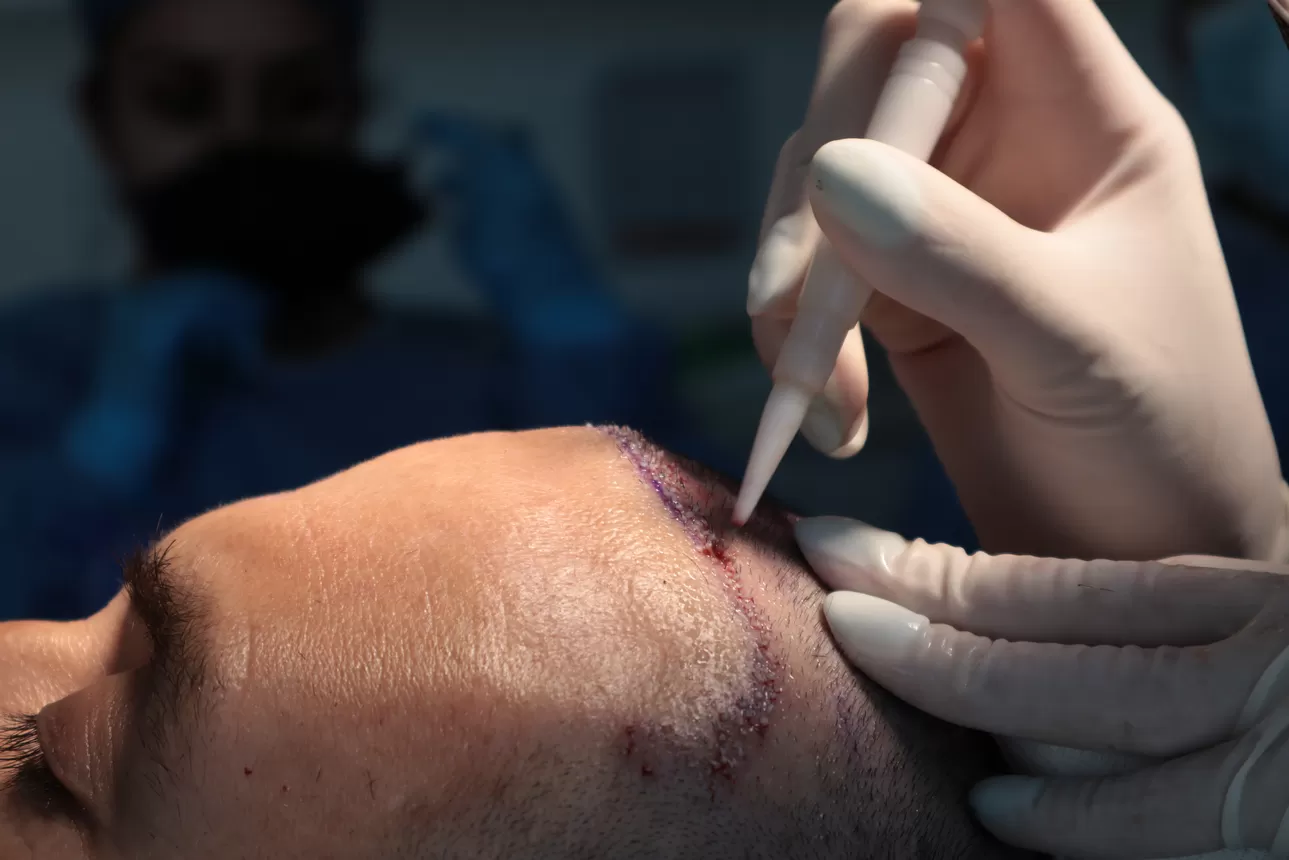Diabetes is one of the most common chronic diseases in the world. Previously it was associated with elderly people, but in recent years increasingly younger patients have been diagnosed with high blood glucose levels, insulin resistance and a series of symptoms, including hair loss.
Tabla de Contenidos
What is the diabetes?
Diabetes is a chronic disease, in which the human body does not correctly manage glucose levels. Under normal conditions, the food we eat is converted into glucose (which is colloquially called sugar) that gives us energy; The pancreas is the organ in charge of producing insulin, a hormone that controls that energy used in order to carry out our daily activities. The energy, or glucose, that is not used is stored as fat.
People who consume an excess of sugars that are not used for energy begin to experience glucose spikes. These spikes cause cells to stop responding to insulin, which can lead to conditions such as insulin resistance in the early stages. These are characterized by dark patches of skin on the neck and armpit folds, loss of vision, dizziness, vertigo, hair loss, among others.
Unfortunately, diabetes usually occurs together with other conditions, such as high levels of cholesterol and triglycerides. This is usually due to a diet rich in fats and sugars, which cause obstructions in the arteries that hinder blood circulation and slow down the nutrient´s arrival into the head´s bloodstream, so the hair follicles growth is affected.
Hair loss due to circulatory problems
The affectation in the blood circulation to the head capillaries can cause, that the growth phases of the follicle and the hair are delayed, making the telogen phase more evident and accelerated. On the other hand, it could also cause poor circulation which hinders the delivery of nutrients, so hair can look dry, damaged, lifeless, brittle and thin.
In a healthy person, hair usually grows about two centimeters a month. But, a person with diabetes may take longer to notice their hair grow, and may see hairless gaps on their head if the follicles remain in a resting phase for a long time and, furthermore, are not replaced at the same rate as they tend to fall.
These same circulatory problems cause the hair that grows to be thinner and weaker than normal even before the first signs of insulin resistance appear.
Hair loss due to glucose imbalances
When the body receives an excess of glucose, it usually has alterations in the immune system, which is more prone to bacterial and fungal infections throughout the body, and the scalp is no exception.
The scalp, like the whole body´s skin, can suffer alterations due to an excess of sugars, such as dehydration, excess hair fat or seborrhea. And if we add circulatory problems, which hinder the nutrients supply, the result is hair with dry ends and greasy roots, with accelerated hair loss, or affected by dandruff or seborrheic dermatitis.
What can I do?
If you have diabetes and suffer from hair loss, the first thing you should do is go to the doctor and control your blood glucose levels. Your body prioritizes other parts of the body before your hair. However, by controlling glucose and insulin levels, the change in your hair will come from within as it will improve blood flow, your immune system and the supply of nutrients so that your hair grows and becomes stronger.
In addition to consuming the recommended medication, diet and exercise are key both for the treatment of diabetes and for improving hair health. By replacing excess sugars with vegetables, proteins, healthy fats and fruits, your hair will receive better quality nutrients, so your hair can look even better than before.
Does metformin damage hair?
Metformin or metformin hydrochloride is the most commonly used medication for hyperglycemia. Doctors sometimes recommend this drug in combination with other drugs to control blood glucose levels, such as sitagliptin or glibenclamide.
Many patients have reported experiencing hair loss on the head, eyebrows, beard and eyelashes after consuming their medication, however, there is little scientific evidence that antidiabetic drugs cause hair loss, but rather that they are associated with the consequences of diabetes.
Other factors that could promote hair loss in people with diabetes:
- Stress
- Insomnia
- Hormonal disorders
- Hypothyroidism
- Polycystic ovary syndrome








